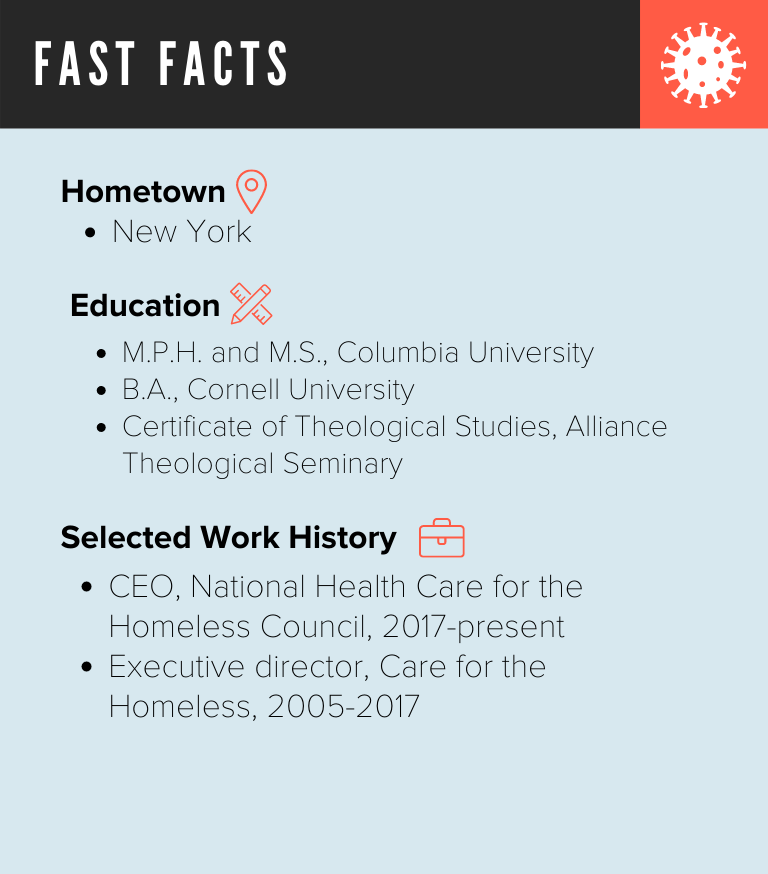CEO, National Health Care for the Homeless Council and member, White House COVID-19 Health Equity Task Force
Fast Facts

Homeless Health Services Specialist

LEARN MORE
Vignette, a service through National Journal Research, is an essential tool for government affairs teams that need to understand the people behind the policies.
Click here to request a demo of the Vignette database, or email njvignette@nationaljournal.com to speak to someone about your access.
After graduating college, Bobby Watts deferred graduate school to work at a rescue mission in New York City. The experience shaped the rest of his career as an advocate for the homeless, and he continued to work there while attending the Columbia University School of Public Health.
After graduating with degrees in health administration and epidemiology, Watts went to work at Care for the Homeless, working his way up from intern to executive director.
Now, Watts serves as CEO of the National Health Care for the Homeless Council, an organization that supports nearly 1 million people experiencing homelessness through 300 federally funded programs and 100 medical-respite providers. He advocates for housing as a human right and argues that ending homelessness is a moral imperative.
Earlier this year, President Biden named Watts a member of the White House COVID-19 Health Equity Task Force. The dozen members are responsible for making recommendations related to social and health inequities resulting from the pandemic, which means Watts’s work of caring for the homeless now includes making sure they have access to coronavirus testing and vaccines.
As he recently told National Journal, “We have tremendous inequity throughout our systems in our society; COVID has just made it clearer to many people.”
Approach and Motivations
Excerpted from Bobby’s Vignette profile
Faith- and human-rights-based approach to addressing homelessness at its root and empowering impacted populations; stresses the importance of effective communication and educational campaigns
- Views homelessness as a moral issue and a moral failure of society, a perspective he attributes to his faith and conviction to care for others, especially the poor; argues that homelessness is in part a product of structural racism that must be met with systemic reform
- Believing health care and housing are basic human rights, centers human rights and dignity when evaluating policy; calls for a more humane approach to issues such as the management of homeless encampments and argues against the criminalization of actions necessary for “human existence,” such as eating, sleeping, and lying down when there are no shelters available
- Defines effective policy communication as scientifically accurate, tailored to each special population, and delivered by trusted ambassadors; focuses on educating people experiencing homelessness, medical providers, and policymakers on how to best prepare for and respond to issues the population is facing
Not a Vignette subscriber? You can purchase a digital book with in-depth profiles on everyone featured in this special report.
To learn more about Vignette, or see the platform in action, request a demo here.

